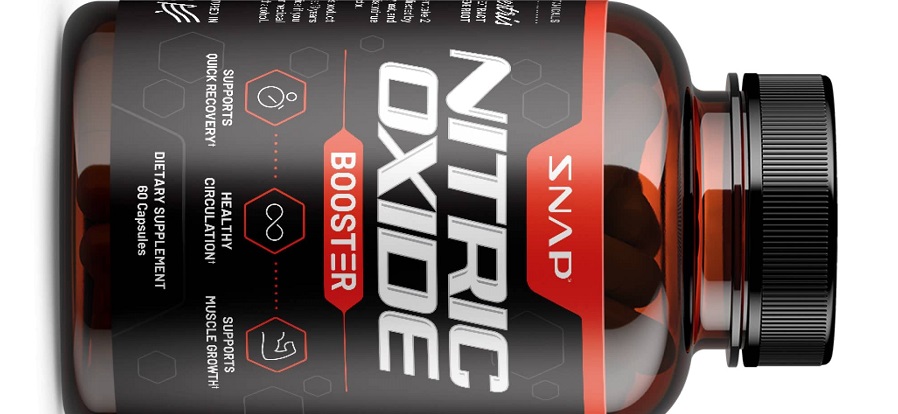Antioxidant supplements are a type of dietary supplement that contain ingredients that help to neutralize free radicals, which are unstable molecules that can damage cells and contribute to the development of chronic diseases such as cancer, heart disease, and Alzheimer's disease. Antioxidants work by neutralizing free radicals and preventing them from causing damage to the cells in the body.
There are many different types of antioxidant supplements available, including vitamins A, C, and E, beta-carotene, and selenium. Some supplements also contain a combination of these ingredients.
The benefits of taking antioxidant supplements include improved overall health and well-being, as well as a reduced risk of developing certain diseases. Antioxidant supplements have been shown to help lower the risk of heart disease, cancer, and Alzheimer's disease. They may also help to improve the immune system, reduce inflammation, and promote healthy aging.
It's important to note that while antioxidant supplements may have health benefits, it's still important to maintain a healthy diet and lifestyle in order to achieve optimal health. Antioxidant supplements should not be used as a replacement for a healthy diet and regular exercise.
It's also important to consult with a healthcare professional before taking any antioxidant supplements, particularly if you are pregnant, breastfeeding, or have any pre-existing health conditions.
In general, it's best to get antioxidants from natural food sources such as fruits, vegetables, nuts, and whole grains, rather than from supplements. Antioxidant supplements can be helpful for certain population such as athletes and bodybuilders, elderly people, or people with deficiency. But for general population, a balanced diet with a variety of fruits and vegetables is enough to provide a good amount of antioxidants.
What are the benefits of taking antioxidant supplements?
The benefits of taking antioxidant supplements include:
-
Improved overall health and well-being: Antioxidants can help to neutralize free radicals and prevent them from causing damage to cells, which may help to improve overall health and well-being.
-
Reduced risk of chronic diseases: Antioxidants have been shown to help lower the risk of developing chronic diseases such as cancer, heart disease, and Alzheimer's disease.
-
Improved immune system: Antioxidants may help to improve the functioning of the immune system, which can help to fight off infections and illnesses.
-
Reduced inflammation: Some antioxidants have anti-inflammatory properties, which may help to reduce inflammation throughout the body.
-
Promotes healthy aging: Antioxidants may help to protect cells from damage caused by free radicals, which may help to promote healthy aging.
-
May help to improve skin health: Some antioxidants, such as vitamin C and beta-carotene, may help to improve skin health by protecting the skin from damage caused by UV radiation and pollution.
-
May help to improve eye health: Some antioxidants, such as vitamin A and beta-carotene, may help to improve eye health and may reduce the risk of age-related eye diseases.
It's important to remember that antioxidant supplements should not be used as a replacement for a healthy diet and regular exercise, and it's always best to consult with a healthcare professional before taking any antioxidant supplements.
Are there any potential side effects of taking antioxidant supplements?
While antioxidant supplements are generally considered safe for most people, there are some potential side effects to be aware of.
-
Interactions with other medications: Some antioxidant supplements may interact with other medications you are taking, so it's important to consult with your healthcare provider before taking any antioxidant supplements if you are on any other medications.
-
High doses of certain antioxidants can be harmful: High doses of some antioxidants such as vitamin A, vitamin E and beta-carotene can be harmful, especially if you are taking them for a long time.
-
Stomach upset: Some antioxidant supplements may cause stomach upset, such as nausea, indigestion, or diarrhea.
-
Risk of bleeding: Some antioxidant supplements, such as vitamin E, may increase the risk of bleeding, particularly if you are taking blood-thinning medication.
-
Risk of birth defects: High doses of vitamin A supplements can increase the risk of birth defects if taken during pregnancy.
-
Risk of kidney damage: High doses of vitamin C supplements may lead to kidney stones.
It's important to follow the recommended dosage on the supplement label and to consult with a healthcare professional before taking any antioxidant supplements, especially if you are pregnant, breastfeeding, or have any pre-existing health conditions.
Can antioxidant supplements help to prevent or treat certain diseases?
Antioxidant supplements have been studied for their potential to help prevent or treat certain diseases. However, it's important to note that more research is needed to fully understand their effects.
-
Cancer: Some studies have suggested that antioxidant supplements may help to lower the risk of certain types of cancer, such as lung cancer and skin cancer. However, other studies have not found a clear link between antioxidant supplements and cancer risk.
-
Heart disease: Some studies have suggested that antioxidant supplements may help to lower the risk of heart disease by reducing inflammation and protecting the heart from damage caused by free radicals. However, other studies have not found a clear link between antioxidant supplements and heart disease risk.
-
Alzheimer's disease: Some studies have suggested that antioxidant supplements may help to lower the risk of Alzheimer's disease by protecting the brain from damage caused by free radicals. However, other studies have not found a clear link between antioxidant supplements and Alzheimer's disease risk.
-
Age-related eye diseases: Some studies have suggested that antioxidant supplements, especially vitamin A and beta-carotene, may help to lower the risk of age-related eye diseases such as cataracts and age-related macular degeneration.
It's important to note that the results of studies on the effectiveness of antioxidant supplements in preventing or treating certain diseases are inconsistent, and more research is needed to fully understand their effects.
It's always best to consult with a healthcare professional before taking any antioxidant supplements and it's important to remember that antioxidant supplements should not be used as a replacement for a healthy diet and regular exercise.
What types of antioxidant supplements are available?
There are many different types of antioxidant supplements available, including:
-
Vitamins: Vitamin A, vitamin C, vitamin E and beta-carotene are all antioxidants that can be found in supplement form.
-
Minerals: Selenium is a mineral that has antioxidant properties.
-
Botanical extracts: Some botanical extracts such as green tea extract, grape seed extract and bilberry extract have antioxidant properties.
-
Enzymes: Some enzymes such as superoxide dismutase (SOD) and catalase are antioxidant enzymes that can be found in supplement form.
-
Proanthocyanidins: These are antioxidants found in plants and fruits such as cranberries, blueberries, and grapes.
-
Carotenoids: Carotenoids such as lycopene, lutein, and zeaxanthin are powerful antioxidants that are found in fruits and vegetables such as tomatoes, carrots, and leafy greens.
-
Coenzyme Q10: This is a natural antioxidant that is produced by the body and can be found in supplement form.
It's important to note that the effectiveness of antioxidant supplements can vary depending on the specific ingredient, dosage, and the quality of the supplement. It's always best to consult with a healthcare professional before taking any antioxidant supplements.
How do you determine the appropriate dosage of antioxidant supplements?
Determining the appropriate dosage of antioxidant supplements can vary depending on the specific supplement and individual needs.
It's important to follow the recommended dosage on the supplement label, and to consult with a healthcare professional before taking any antioxidant supplements, especially if you are pregnant, breastfeeding, or have any pre-existing health conditions.
For most antioxidant supplements, the recommended daily dosage is usually in the range of 200-800 IU for Vitamin E, 60-90 mg for Vitamin C, and 15-30 mg for beta-carotene. However, it's always best to consult with a healthcare professional to determine the appropriate dosage for you, as it can depend on your individual needs, such as your age, sex, weight, and overall health.
It's also important to note that while antioxidant supplements may have health benefits, it's still important to maintain a healthy diet and lifestyle in order to achieve optimal health. Antioxidant supplements should not be used as a replacement for a healthy diet and regular exercise.
Are there any interactions between antioxidant supplements and other medications?
Some antioxidant supplements may interact with other medications you are taking. It's important to consult with your healthcare provider before taking any antioxidant supplements if you are on any other medications.
-
Vitamin E may increase the risk of bleeding when taken with blood-thinning medication such as warfarin.
-
Vitamin C may interact with certain chemotherapy drugs, potentially reducing their effectiveness.
-
Vitamin A supplements can cause birth defects if taken during pregnancy, so it is not recommended for pregnant women to take high doses of vitamin A supplements.
-
Selenium supplements can interact with certain medications for thyroid disease, so consult with your healthcare provider if you are taking any thyroid medication.
-
Vitamin C may interact with certain medications for high blood pressure, so consult with your healthcare provider if you are taking any blood pressure medication.
It's always best to consult with a healthcare professional before taking any antioxidant supplements, especially if you are pregnant, breastfeeding, or have any pre-existing health conditions. It's also important to inform your healthcare provider about all the medications you are currently taking and any supplements you are taking, to ensure that there are no interactions.


